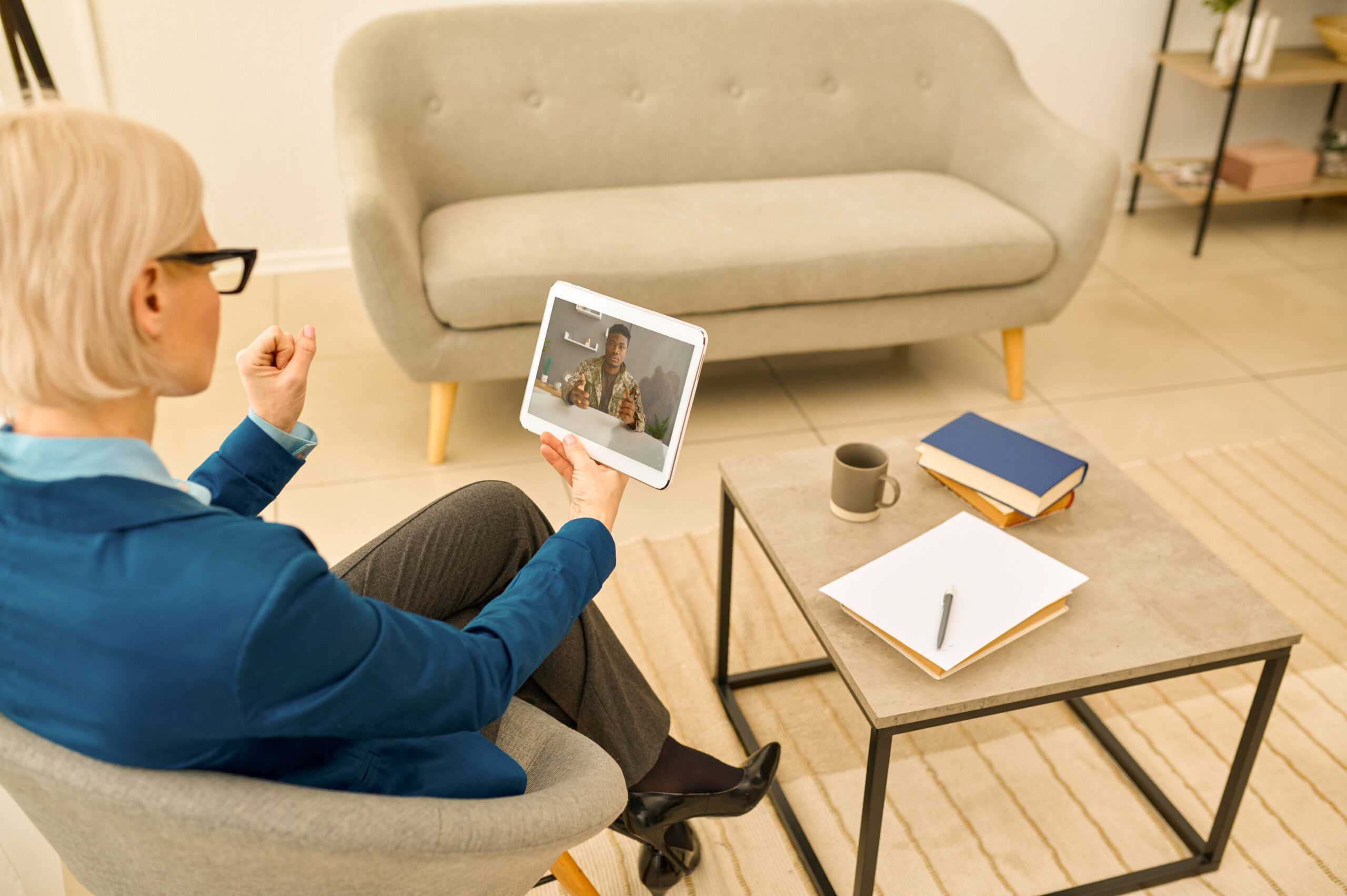Providing online psychotherapy doesn't just mean for a therapist to check out a video interview with their client. Online psychotherapy has strict rules, and it is certainly not simply "chatting" with a screen. All psychotherapists who provide online psychotherapy must be professionally supervised and have appropriate training. It is advisable to leave the recommendation of a particular therapist to the diagnosing psychologist. Choosing a therapist based solely on a photograph is not the optimal way to go.
Online therapy in general

How does online psychotherapy work?
We assume that not every client has experience with video calls. Therefore, the therapist first contacts the client by phone and arranges a form of online call. We use very often calls via messenger, whatsapp, skype or other platforms. Anyone who is not experienced with online conversation will be directly guided by the therapist over the phone and helped to set up the necessary platform on their computer, laptop or mobile phone.
During online therapy, eye contact, nonverbal communication and gestures are maintained. In addition to the spoken word, the therapist uses visual materials, can practice breathing or muscle strategies with the client, relax (this is even better) and use all other therapeutic techniques.


Can Skype therapy be comparable to a face-to-face meeting?
Although it may seem impossible to some, the therapeutic effect and results of treatment are almost identical. It's really just a matter of habit. Several years of research have clearly shown that, for example, cognitive behavioural therapy in the form of online video interviewing shows completely comparable and even better results than face-to-face therapy for anxiety disorders.
However, the effect of online therapy has not been demonstrated only in the case of KBT psychotherapy. Even psychotherapeutic methods that focus on emotions, abreaction, corrective experience, self-acceptance, etc. can be implemented remotely with great success
Our experience of online therapy at AdiCare
Our experience in our practice also confirms that online therapy is becoming a full-fledged substitute for face-to-face therapy. Younger people find this form of communication quite natural, while middle-aged and older people usually have to overcome their initial mistrust. We encourage everyone to try one hour online and judge for themselves whether this form suits them.
Read the results of the studies
Benefits of online therapy
For some psychological disorders, on the other hand, the process of recovery through distance therapy is significantly accelerated. A well-known effect of online therapy has been demonstrated in the treatment of anxiety disorders. The client is in his or her own environment, more easily relaxed and attuned to the therapeutic encounter.
The natural phase of initial mistrust, nervousness and some caution is considerably shortened. The therapist does not have the advantage of a "home environment" and the client is not a "guest"; the relationship can be one of partnership and equality from the outset. Even in the subsequent therapeutic contact, we observe that the client tunes in to the therapy much earlier than in a regular meeting.


Arriving at the health care facility is often associated with stress about whether I will arrive on time, whether I will find a parking space, etc. Often clients tend to "breathe it out" during the first part of the therapy and the time spent with the therapist online seems longer.
Other advantages are obvious. Online therapy lends itself to a more regular rhythm of therapy sessions. The regularity of therapeutic work is one of the significant factors that influence the success of therapy. Remote psychotherapy can also be used by those who do not live near Prague and commuting is difficult for them.
Also clients with disabilities and all those who are unable to get out of the house due to their mental suffering (agoraphobia, social phobia, depression and many other disorders).